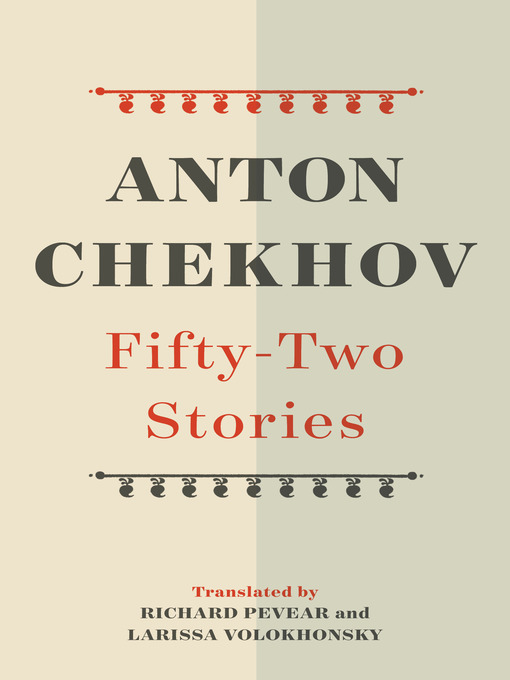
Fifty-Two Stories
کتاب های مرتبط
- اطلاعات
- نقد و بررسی
- دیدگاه کاربران
نقد و بررسی

February 15, 2020
The indefatigable translating team of Pevear and Volokhonsky deliver a first-rate collection of Chekhov's stories that highlight their "extraordinary variety." In his lifetime, Chekhov (1860-1904), physician and writer, was accused of immorality because he wrote of the lives of little people with little problems rather than taking the god's-eye perspective of a Tolstoy. His reply: "What makes literature art is precisely its depiction of life as it really is." Pevear and Volokhonsky (Novels, Tales, Journeys: The Complete Prose of Alexander Pushkin, 2016, etc.) select stories--happily, one for each week of the year--that express that devotion to realism, even if sometimes broadly satirically. The first piece, from 1883, depicts the bursting-at-the-seams pride of a young man whose name has appeared in the newspaper, even if it's not for reasons to be proud of: It seems that he was drunk and "slipped and fell under the horse of the cabby Ivan Drotov," then was clonked on the head by the axle. He can't wait to tell the neighbors. Chekhov notes that he's a "collegiate registrar," which, Pevear and Volokhonsky helpfully gloss, is at the bottom rung of the czarist civil service. In another story, "Fat and Skinny," a difference in rank takes on great importance: Old friends meet. One, it turns out, is a "collegiate assessor," a rung up the ladder, and forced to supplement his meager income by making wooden cigarette cases. "We manage somehow," he sighs, while his portly friend allows that he's "already a privy councillor," third from the top and requiring the use of the term of address "Your Excellency." Encounters between young and old, rich and poor, country and city people mark these stories, though perhaps the best of them is an odd, longish yarn called "Kashtanka," about a young dog, "half dachshund and half mutt," whose master, "drunk as a fish," loses her, whereupon the dog undergoes a series of adventures worthy of Pinocchio. It's a marvel of imagination. A welcome gathering of work, some not often anthologized, by an unrivaled master of the short story form.
COPYRIGHT(2020) Kirkus Reviews, ALL RIGHTS RESERVED.

March 1, 2020
One of the greatest dangers facing a translator is producing content that reads obviously like a translation. In this collection of 52 stories by Chekhov (some never before rendered in English), celebrated translators Pevear and Volokhonsky avoid this trap, eloquently interpreting the great Russian writer's ideas. Someone unfamiliar with Chekhov could easily be convinced that the stories were originally conceived by Pevear and Volokhonsky themselves. Their attention to Chekhov's detail when describing scenery, emotional states, and the characters' inner monologs produces work that flows. Some readers may feel, however, that the flowery language somewhat overshadows the content itself. In comparison, Rosamund Bartlett's translations of the stories are simpler, and Paul Schmidt's translation of the plays, the preferred text for many in the acting world, offers an original voice like Pevear and Volokhonsky's but is more down to earth, avoiding the formality of many translations and revealing how Russians actually speak. Pevear and Volokhonsky's work isn't stiff, but it is more innovative, offering a vivid style of its own. VERDICT Though some readers may prefer a more straightforward, colloquial style, fans of heightened language will enjoy this translation, which should appeal to a wide audience. A comprehensive volume that will satisfy the needs of many libraries.--Michael Anne Hoffert-Cone, New York
Copyright 2020 Library Journal, LLC Used with permission.

























دیدگاه کاربران